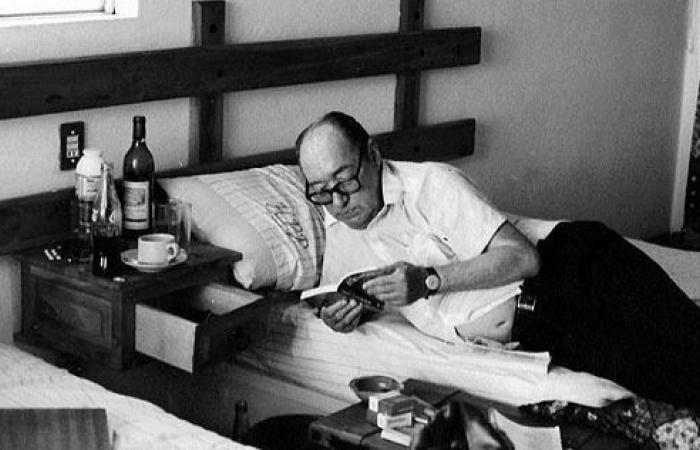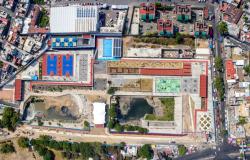Several handwritten texts, such as letters, articles and congratulations, a photo and several editions of his books are part of the Uruguayan’s ‘in memoriam’ legacy. Juan Carlos Onetti (1909-1994), one of the most important writers of Latin American literature, deposited this Thursday in the Caja de las Letras.
His widow, Dolly Onetti, has been in charge of placing the legacy of the Uruguayan author, exiled in Spain since the mid-70s and who obtained the Cervantes Prize in 1980 and the Grand National Prize for Literature of Uruguay in 1985.
Dolly Onetti has recalled how she read “from the moment she opened her eyes” and that she was one of the few people who could live in a room lying down with a book, while “the rest of the world did not exist”, although she bought the newspaper daily and was so much of everything.
Among the objects bequeathed to the Letter Box There is a letter to his Italian translator with whom he had a close friendship for years, a handwritten text addressed to Carlos Maggi, a Uruguayan playwright, where his sense of humor emerges, as in the letter to Dolly’s mother in the who reproaches him for never telling him that he didn’t know how to cook.
A birthday greeting to his wife and a handwritten text for a telegram he sent to Rafael Alberti, wishing him to be awarded the Cervantes Prize, are other documents, along with the article ‘Son and father of the jungle’, about Horacio Quiroga whose stories he admired, and letters to a Uruguayan journalist, which includes a poem, one of the two he wrote, as well as the writer Hugo Fontana.
A photo of Juan Carlos and Dolly Onetti and editions of their books from different periods have also been bequeathed, one of them with a dedication from him, as well as those published in Greek and Chinese, as a symbol of Onetti’s universality, Hortensia explained. Campanella, editor of the complete works of the Uruguayan writer.
The director of the Cervantes Institute, Luis García Monterohas highlighted the figure of this journalist and narrator, a great figure in literature in Spanish, whose “honest political attitude” led to tensions with the Uruguayan authorities, after which he went into exile.
In Spain he was a reference, since he represented in his daily life “the true commitment to the literary vocation”, García Montero has said: “Onetti is a way to follow, he taught us the tenderness that exists in the shipwrecks of daily life.” .
Juan Carlos Onetti (Montevideo, 1909 – Madrid, 1994) began his literary work in Buenos Aires and in 1935 he wrote ‘Children in the Forest’ and ‘Time to Embrace’, which were not published until almost forty years later. In 1939 he published his first book, ‘The Well’.
In 1940 he published his first relevant story, ‘A Dream Realized’, in the Buenos Aires newspaper La Nación, which was followed by other publications such as ‘The obstacle’ and ‘The possible Baldi’. And in Sur magazine, stories like ‘The Album’ and the short novel ‘Los Adioses’.
Appointed in 1957 as director of Libraries in the Arts and Letters Division of the Municipal Administration of Montevideo, he held the position until 1975 and, due to political problems in Uruguay, he moved his residence to Spain.
In 1989 his novel ‘The Face of Misfortune’ was made into a film by the Argentine director Pedro Stocky and in 1991, after receiving the Rodó Prize in 1991, he donated the financial endowment of the award for the purchase of books in municipal libraries.
In 1993, his last novel, ‘When it no longer matters’, was published, considered his literary testament.






